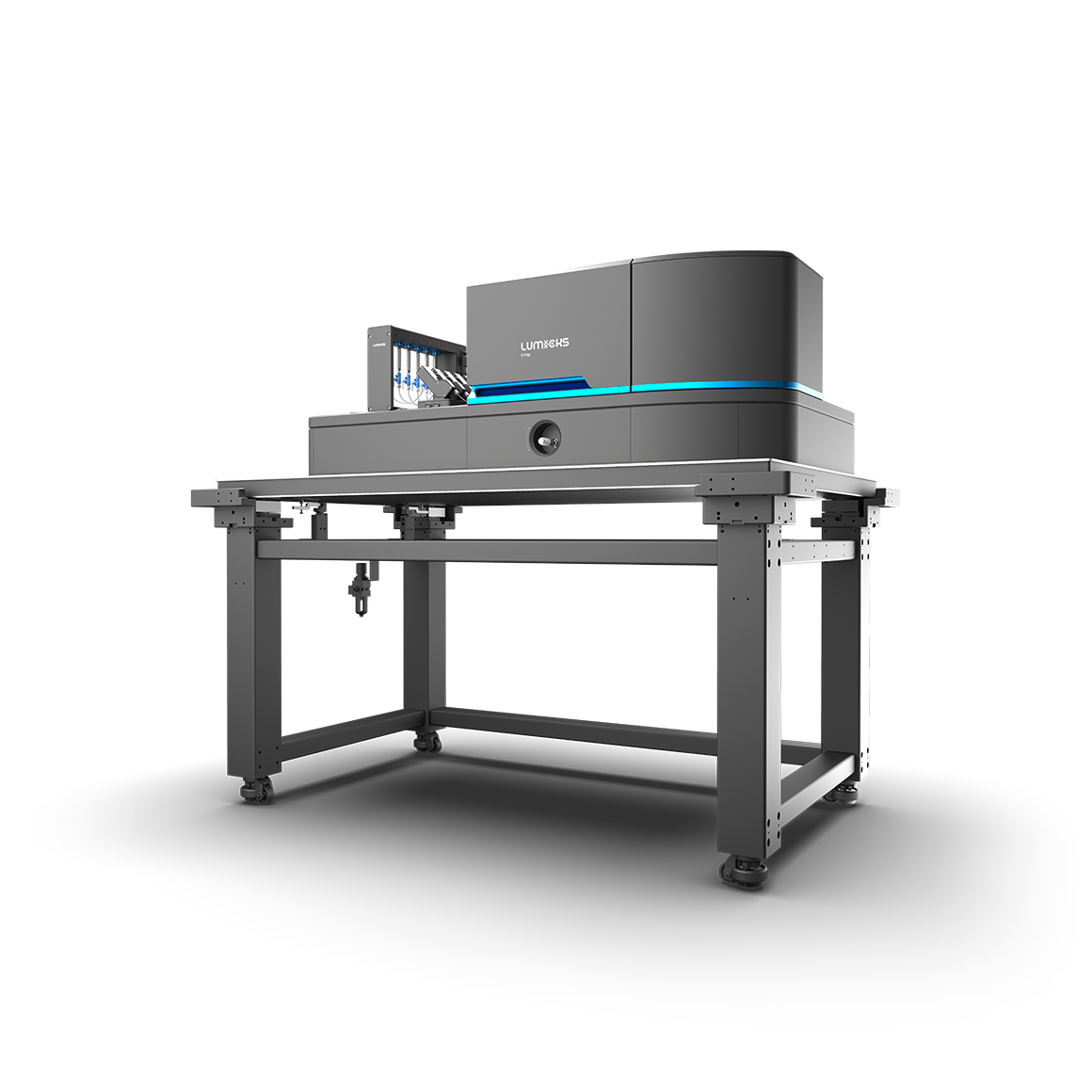Optical tweezers
What are optical tweezers and what can they do?
By shooting a laser through a microscope, he created a highly focused light beam, strong enough to trap and “trap” small objects, such as plastic beads. These beads can be coated to stick to various biomolecules, such as DNA, RNA, proteins, or filaments. Two trapped beads can be used as hooks to hold a single molecule on its respective ends. We can then control the lasers and move the beads with the tethered biomolecule and, for instance, stretch it. The ability to manipulate molecules in this way allows us to measure forces (for example, upon stretching) and monitor the beads’ positions. These outcomes can then serve us to calculate the tethered molecule (for example, its elasticity) and study structural transitions.
Discovery of optical tweezers
Not long after this initial breakthrough, optical tweezers, or optical traps as they are otherwise known, were successfully used to physically trap and control viruses, bacteria and single-cells, paving the way for the mechanical and kinetic study of biomolecules at the single-molecule level2-3.
Presently, optical tweezers have been used in a variety of different applications, such as in the study of the interactions between proteins and DNA involved in DNA organization, replication, transcription and repair; the study of the energy landscape of proteins and the kinetics of molecular motors4-7.
Simply put, the value of optical tweezers lies in the fact that they can be used to perform experiments to probe the properties of single-molecules by applying forces in the range of picoNewtons and by measuring distance displacements in the range of nanometers.

Working principle of optical tweezers
When a laser beam passes through an object, it bends and changes direction (called refraction) and alters its momentum. According to Newton’s third law, the object undergoes an equal and opposite momentum change, a reaction force, for the system to conserve the total momentum.
Figure 1 illustrates the transfer of light momentum occurring when a light beam travels through a bead. In a typical optical tweezers configuration, the incoming light originates from a focused laser beam through a microscope objective and focuses on a spot in the sample. The spot subsequently creates a trap able to hold a small object in place.

Laser trapping of beads
The total forces experienced by the object, or bead in most experimental settings, consist of a scattering force and a gradient force8. The scattering force arises when a light beam is scattered by the surface of the object. This scattering produces a net momentum transfer from the light photons to the object and causes the bead to be pushed towards the beam propagation. The gradient force results from the intensity profile of the laser beam which acts as an attractive force, drawing the bead towards the region with greater light intensity. In the case of a focused laser beam with a Gaussian intensity profile (a normal distribution), the gradient force pulls the object into the center of the focal plane.
The reason the object stays in the center of the beam is because of the sum of the forces acting upon it. In the center, rays of light refract or scatter through the object the same way on both sides of the vertical plane, which cancels forces from moving the object sideways. If the object drifts to one side, it returns to the center. Think of a spring that accelerates back to the center when displaced from its equilibrium position. Figure 2 shows how the gradient force restores an off-centered bead towards the center of the focal plane, eff ectively trapping the object in all dimensions

References
C-Trap
Molecular biology as never seen before
The C-Trap® provides the world’s first dynamic single-molecule microscope to allow simultaneous manipulation and visualization of single-molecule interactions in real time.

Filter CA and show 4 Latest
This shows the most recent card of each resource type filtered on Business Unit CA.
Webinar, Scientific update, Whitepaper, Application note, Brochure.
We only show 4 and we have 6 types so the 2 older ones are hidden.
In design only 1 is shown, but the rest will be loaded when published.
Tuning CAR-T cells by targeting cancer-associated glycan in pancreatic cancer
Chimeric antigen receptor (CAR) T cell therapy has transformed cancer treatment, but its efficacy remains limited in solid tumors due to antigen heterogeneity, an immunosuppressive microenvironment, and the glycocalyx barrier. The glycocalyx, composed of dense glycoproteins such as MUC1, is markedly expanded in cancers, where it impedes immune cell access and antigen engagement, thereby reducing therapeutic efficacy. In most adenocarcinomas, the Tn antigen, comprising N-acetylgalactosamine linked to serine or threonine, is overexpressed. Tn-MUC1, a truncated form of MUC1 decorated with Tn antigen, is frequently overexpressed in pancreatic cancer. Here, we incorporate a non-signaling glyco-bridge binder recognizing Tn-MUC1 into mesothelin-directed CAR-T cells. This bridge enhances tumor recognition and cytotoxicity by increasing avidity and facilitating CAR activation in a density- and affinity-dependent manner. To directly validate these effects at the cell interaction level, we used Lumicks z-Movi to quantify CAR-T binding strength to tumor targets. CAR-T cells equipped with the Tn-MUC1 glyco-bridge exhibited higher cell avidity toward Tn-MUC1-expressing tumor cells compared to a CD19 bridge control. To broaden its applicability, we design a tandem Helix pomatia agglutinin (HPA) lectin-based bridge that recognizes Tn antigens across cancer types. CAR-T cells with the HPA-bridge exhibit superior cytotoxicity in pancreatic cancer models.
Enhancing efficacy against clear cell renal cell carcinoma through format-tuning of bispecific T cell engagers
Cell Avidity: a key to accelerate IND filing in cell therapy drug development
Accelerate your cell engager discovery with high throughput measurements of Cell Avidity
T cells play a pivotal role in tumor immunosurveillance. Multispecific cell engagers (CEs) have been adopted in the field of immuno-oncology to redirect T cells toward cancer cells, thereby unleashing the anti-tumor potential of the patient’s immune system. CE-mediated cell binding induces T cell activation and the formation of an immunological synapse, which is a prerequisite for effective tumor cell lysis.
The strength of the initial binding events between a T cell and a tumor cell dictates the efficiency of the anti-tumor response. Assessing cell avidity, i.e. the total intercellular interaction strength between two cells, gives crucial insights into the efficacy of CEs as anti-tumor therapeutic agents.
Here, we deploy LUMICKS’ high throughput avidity measurement (HTAM) technology to measure CE-induced cell avidity in a high throughput manner. We demonstrate the assay performance characteristics, i.e. specificity, precision, and range, via CE titration experiments in the context of a Jurkat T cell model system. We find that the HTAM CA assay is suitable for candidate screening in high throughput, with high sensitivity and precision.
Cell Therapy Case Study Collection








